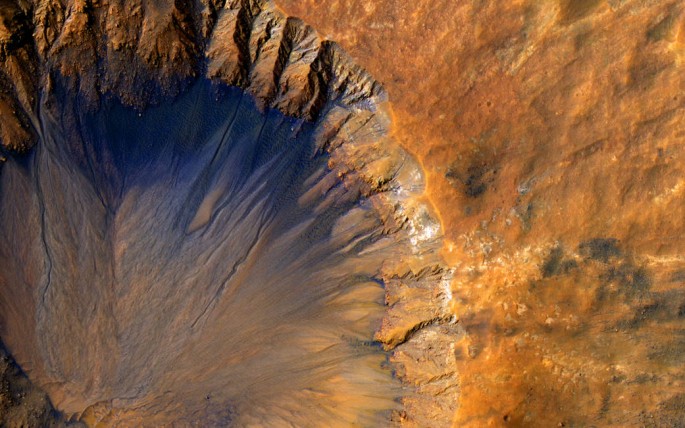NASA is now getting ready for its future manned Mars mission as the space agency is conducting preparations about possible landing sites for the spacecraft to touchdown on the surface of the Red Planet. This means that they should have plenty of time to figure that one out since it will take another 20 years before the scheduled launch.
In October, NASA will host a workshop in Houston to commence discussions about the finalization of possible landing sites for this first manned Martian mission which is slated in the mid 2030s. This workshop will last four days where researchers and scientists will propose their exploration zones that are estimated to measure some 62 miles on Martian terrain.
Scientists are encouraged to share what they believe are significant regions that are scientifically feasible and interesting enough for scientific research and also capable of supporting a future colony where resources such as subsurface ice are found.
According to NASA's Planetary Science Division head, Jim Green, this will become a hot debate where the October meetings will begin with a discussion about which location a station should be most feasible and how operations will be carried out on Mars.
In preparation for this future manned mission to Mars, NASA is planning to study further these possible exploration zones with the Mars Odyssey spacecraft and Mars Reconnaissance Orbiter that are already exploring Mars while in orbit since 2001 and 2006.
Green adds that it is most crucial for human explorers to acquire high resolution imagery of the entire exploration zone however, the MRO has only captured high resolution images of only three percent of the Martian terrain to date.
He says that detailed information especially about the mineralogy of the exploration zones is pivotal for mission planners in order to provide clues about potential resources from the sites.
NASA's first Martian workshop called the Landing Site/Exploration Zone Workshop for Human Missions to the Surface of Mars will take place at the Lunar and Planetary Institute in Houston, Texas from October 27 to October 30.






















